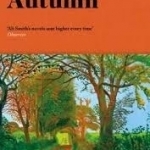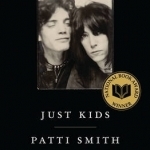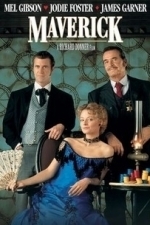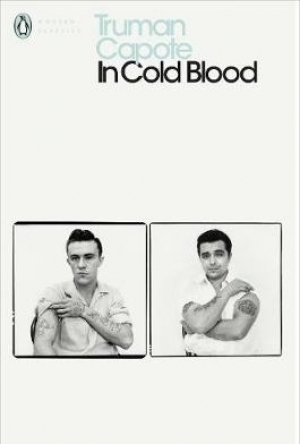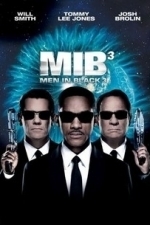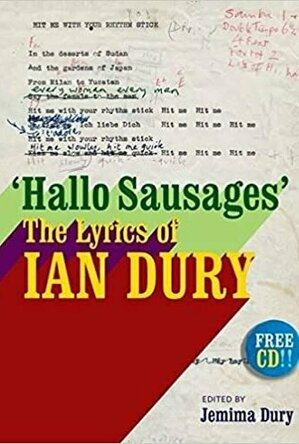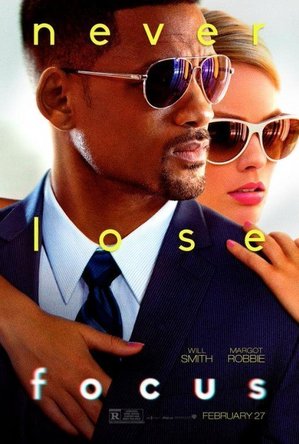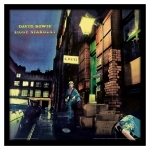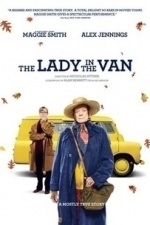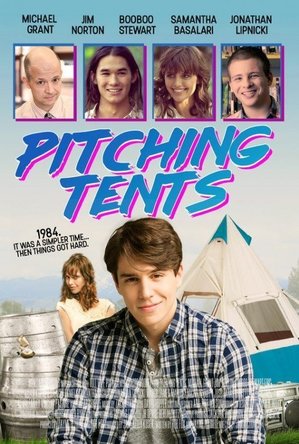Search
Search results
Suswatibasu (1703 KP) rated Autumn in Books
Jan 10, 2018
Unusual story yet beautiful prose
Ali Smith has a wonderful way with words, describing a relationship between a young girl and her eccentric older neighbour, which seems to mirror the title of this book. Autumn shows the blossoming and withering of a man, Daniel Gluck, describing his younger years as a respected art critic of sorts, and the beauty he was constantly surrounded by. When he meets the younger Elisabeth Demand, he is already in the process of change, but she continues to help him feel alive, while he has a mentor-like relationship with her.
In between, Smith describes all of the major events plaguing Britain. From protesting the Iraq war, to Brexit doom, the perpetual markers that appear in the background of this constant, unwaning friendship. Can love and art really triumph over war? Smith believes it can.
The main issue with this novel is the fact that it is completely disjointed, and ends on a quite anti-climactic note. Read for the tone and not the story.
In between, Smith describes all of the major events plaguing Britain. From protesting the Iraq war, to Brexit doom, the perpetual markers that appear in the background of this constant, unwaning friendship. Can love and art really triumph over war? Smith believes it can.
The main issue with this novel is the fact that it is completely disjointed, and ends on a quite anti-climactic note. Read for the tone and not the story.
Suswatibasu (1703 KP) rated Just Kids in Books
Aug 17, 2017
Mesmerising memoir of the 1970s art scene
I was worried that this was another overhyped autobiography of another self-congratulating artist. But I was proved totally wrong. Patti Smith is truly unique and interesting, having had a life of hardship living on the streets to living with a partner equally mixed up, to engaging in a world that was the founding of America's modern art scene. More than the meandering, wonderful, dark tales is her liquid prose. She's not only an inspired poet but a fantastic all-round writer. She was known for all of her relationships with famous men, but this is about the one man who mattered the most. Well worth all of the awards.
Matthew Krueger (10051 KP) rated Maverick (1994) in Movies
Jul 14, 2020 (Updated Jul 14, 2020)
Play Your Cards Right
Maverick- is a funny entertaining western with action, poker and adventure. Richard Donner does it once again.
The plot: This film update of the "Maverick" TV series finds the title cardsharp (Mel Gibson) hoping to join a poker contest with an impressive payoff. In order to enter, Maverick must first put up a large cash sum. He scams hopeful contestants Annabelle (Jodie Foster) and Angel (Alfred Molina) in a preliminary card game to win the money he needs, making enemies of both players. While trying to evade Annabelle and Angel, the crafty Maverick realizes a cunning marshal (James Garner) is also on his tail.
Many cameo appearances by Western film actors, country music stars and other actors. Including Danny Glover, Hal Ketchum, Corey Feldman, Read Morgan, Steve Kahan, Art LaFleur, Leo Gordon, Denver Pyle, Robert Fuller, Doug McClure, Henry Darrow, William Smith, Charles Dierkop, William Marshall, Dennis Fimple, Bert Remsen and Margot Kidder.
Danny Glover's cameo appearance references Donner's Lethal Weapon film series starring Glover and Gibson as cop partners. Their meeting in Maverick sees them share a moment of recognition, complete with Lethal Weapon music, and as he leaves, Glover says Roger Murtaugh's catchphrase: "I'm getting too old for this shit."
Country singers also cameo including Carlene Carter, Waylon Jennings, Kathy Mattea, Reba McEntire, Clint Black, Vince Gill and Janis Gill.
Its a funny entertaining western. A must watch.
The plot: This film update of the "Maverick" TV series finds the title cardsharp (Mel Gibson) hoping to join a poker contest with an impressive payoff. In order to enter, Maverick must first put up a large cash sum. He scams hopeful contestants Annabelle (Jodie Foster) and Angel (Alfred Molina) in a preliminary card game to win the money he needs, making enemies of both players. While trying to evade Annabelle and Angel, the crafty Maverick realizes a cunning marshal (James Garner) is also on his tail.
Many cameo appearances by Western film actors, country music stars and other actors. Including Danny Glover, Hal Ketchum, Corey Feldman, Read Morgan, Steve Kahan, Art LaFleur, Leo Gordon, Denver Pyle, Robert Fuller, Doug McClure, Henry Darrow, William Smith, Charles Dierkop, William Marshall, Dennis Fimple, Bert Remsen and Margot Kidder.
Danny Glover's cameo appearance references Donner's Lethal Weapon film series starring Glover and Gibson as cop partners. Their meeting in Maverick sees them share a moment of recognition, complete with Lethal Weapon music, and as he leaves, Glover says Roger Murtaugh's catchphrase: "I'm getting too old for this shit."
Country singers also cameo including Carlene Carter, Waylon Jennings, Kathy Mattea, Reba McEntire, Clint Black, Vince Gill and Janis Gill.
Its a funny entertaining western. A must watch.
Hadley (567 KP) rated In Cold Blood: A True Account of a Multiple Murder and Its Consequences in Books
Aug 2, 2020
The writing (1 more)
The flow
In the 'Introduction' of Capote's true crime novel In Cold Blood, American writer Bob Colacello states: "Capote was one of the first who dared to elevate journalism to the level of art. In Cold Blood is a work of great discipline and even greater restraint, a tale of fate, as spare and elegiac as a Greek tragedy, as rich in its breadth and depth as the classic French novels of Stendhal and Flaubert. 'We all have our souls and we all have facades,' Truman Capote told his friend Kay Meehan a year or so before he came upon the news that would inspire his masterpiece, 'and then there's something in between that makes us function as people. That's what I have the ability to communicate.' "
The novel, which was published in 1965, is an eyewitness account of Capote's visitation to the scene of the murder as well as meetings with the murderers and townspeople- - - a retelling of the crime and aftermath, mostly from the eyes of those affected, by hundreds of hours of interviews and interrogations. The novel, ultimately, was the end of Capote which led him to alcoholism that took his life in 1984.
Like most small-town murders, a tension between residences is created when a well-known and well-liked family of four is brutally murdered, and everyone begins to point a finger at the other: "But afterward the townspeople, theretofore sufficiently unfearful of each other to seldom trouble to lock their doors, found fantasy re-creating them over and again - - - those somber explosions that stimulated fires of mistrust in the glare of which many old neighbors viewed each other strangely, and as strangers." Fortunately, the KBI (Kansas Bureau of Investigation) didn't allow these accusations to keep them from finding the real killers.
" 'Deep down,' Perry continued, 'way, way rock bottom, I never thought I could do it. A thing like that.' " Perry Smith, one of the murderers, confesses to his cohort and partner-in-crime, Richard Hickock, about murdering the Clutter family. "Presently, he said, 'Know what it is that really bugs me? About that other thing[Clutter murder]? It's just I don't believe it- - - that anyone can get away with a thing like that.' And he suspected that Dick [Richard] didn't, either. For Dick was at least partly inhabited by Perry's mystical-moral apprehensions. Thus: 'Now, just shut up!' "
Capote writes clearly of the impact that Smith's and Hickock's past may have played leading up to the murders, mostly focusing on Smith's traumatic childhood. During the trial portion of the book, a psychologist is brought in to point out how the two murderers may not have been responsible for their actions due-to instances in their past - - - a horrific car crash in Hickock's that left him with a lop-sided face and black-out spells, as well as Smith being physically and emotional abused by his alcoholic mother and father. In exploring these traumas, In Cold Blood leaves the impression that these two men were merely ticking time bombs and that the Clutter family, unfortunately, had to pay for it.
The trauma shared by Hickock and Smith help to shape the two murderers into actual human beings rather than monsters throughout the novel: one scene, where we get to read a letter to Smith from his last living sister, readers get to see how he was perceived by his family members, as his sister goes on to degrade him to the maturity level of a child and that she is above him because of that- - -but she also reveals her jealousy of their father loving him more than he ever loved her (despite the excessive abuse). A close friend of Smith's tells him to be careful writing her anymore because he believes that: 'they can only serve to increase your already dangerous anti-social instincts.'
Part of the narrative, too, is the KBI agent in-charge of the Clutter murder, Alvin Dewey: One day while visiting Holcomb's well-known cafe (Hartman's) where Dewey is told he looks awful from weight loss and fatigue - - - Dewey recalls that he had spent: 'two wearying and wasted days trying to trace that phantom pair, the Mexicans sworn by Paul Helm to have visited Mr. Clutter on the eve of the murders.' And then he gets heckled by a local, who wants to know why he hasn't found the people responsible yet,but Dewey simply smiles and walks away, having put up with numerous people being angry that the murders were taking so long to solve.
But it wasn't footwork that got the pair arrested, it was an old cellmate who had given Hickock the idea that there was $10,000 in a safe at the Clutter farm that came forward: (read this on my blog because I had to cut it out since my review was too long!).
Meanwhile, readers also get to experience Hickock and Smith's troubles as they are on the run after the murders which is done masterfully by Capote. And although one would assume that the killers would stay as far away from Kansas as possible, the two end up back there, only to miraculously get out before the police can catch up with them. The pair decide to head to Florida, where, on December 19, 1959, an entire family was murdered in the exact same way as the Clutters; Hickock and Smith both adamantly denied that they were involved with it - - - and back in 2012- - - Hickock and Smith's bodies were exhumed to compare their DNA with a profile found on one of the victim's clothing: they were not a match. The case remains unsolved til this day.
" Presently he[Smith] came across an inner-page story that won his entire attention. It concerned murder, the slaying of a Florida family, a Mr. and Mrs. Clifford Walker, their four-year-old son, and their two-year-old daughter. Each of the victims, though not bound or gagged, had been shot through the head with a .22 weapon. The crime, clueless and apparently motiveless, had taken place Saturday night, December 19, at the Walker home, on a cattle-raising ranch not far from Tallahassee."
Not soon after the pair leave the Florida beaches, they are arrested on what they believe to be parole violations, but it's clear, when the arresting officers are KBI agents that they had been caught for the Clutter murders. " 'Listen good, Perry. Because Mr. Duntz[KBI agent] is going to tell you where you really were...' Midway in the questioning, after he'd[Smith] begun to notice the number of allusions to a particular November weekend, he'd nerved himself for what he knew was coming, yet when it did, when the big cowboy with the sleepy voice said, 'You were killing the Clutter family' - - - well, he'd damn near died. That's all. "
The confession that follows is the most intense part of the book, given in it's entirety, readers finally get to know what happened to the Clutter family that cold night in November, 1959. Smith reveals that he never had the intention to kill anyone in the home, and that when the safe hadn't been found, he had fully intended to leave, even without Hickock, but what kept him there was Hickock threatening to rape Nancy Clutter. Smith states that he hates people who can't control themselves sexually, and that he didn't allow his partner to touch her at all. He also reveals that he thought about killing Hickock afterwards,stating: " no witnesses."
Capote didn't write 'In Cold Blood' until after Hickock and Smith were executed. The amount of interviews, court room appearances, and even witnessing the executions of both murderers shines through in this novel. But the book has also brought about doubters; a handful of people have since come forward to state that Capote's masterpiece is either 'not the full story' or 'completely wrong.' Just as recent as 2017, a man came forward with a 'manuscript' of a book that Hickock was writing, that contained a different confession on how and why the murders took place- - - Hickock states in this unpublished manuscript that a man by the name 'Roberts' had hired him and Smith to kill the Clutters.
Whether or not you believe that Capote wrote the whole truth or some of the truth, this novel is flawless and beautiful. The writing is poetic and the flow of the story keeps moving, page after page, never stopping long enough to bore the reader. I highly recommend this book as a MUST READ for anyone who loves the True Crime genre.
The novel, which was published in 1965, is an eyewitness account of Capote's visitation to the scene of the murder as well as meetings with the murderers and townspeople- - - a retelling of the crime and aftermath, mostly from the eyes of those affected, by hundreds of hours of interviews and interrogations. The novel, ultimately, was the end of Capote which led him to alcoholism that took his life in 1984.
Like most small-town murders, a tension between residences is created when a well-known and well-liked family of four is brutally murdered, and everyone begins to point a finger at the other: "But afterward the townspeople, theretofore sufficiently unfearful of each other to seldom trouble to lock their doors, found fantasy re-creating them over and again - - - those somber explosions that stimulated fires of mistrust in the glare of which many old neighbors viewed each other strangely, and as strangers." Fortunately, the KBI (Kansas Bureau of Investigation) didn't allow these accusations to keep them from finding the real killers.
" 'Deep down,' Perry continued, 'way, way rock bottom, I never thought I could do it. A thing like that.' " Perry Smith, one of the murderers, confesses to his cohort and partner-in-crime, Richard Hickock, about murdering the Clutter family. "Presently, he said, 'Know what it is that really bugs me? About that other thing[Clutter murder]? It's just I don't believe it- - - that anyone can get away with a thing like that.' And he suspected that Dick [Richard] didn't, either. For Dick was at least partly inhabited by Perry's mystical-moral apprehensions. Thus: 'Now, just shut up!' "
Capote writes clearly of the impact that Smith's and Hickock's past may have played leading up to the murders, mostly focusing on Smith's traumatic childhood. During the trial portion of the book, a psychologist is brought in to point out how the two murderers may not have been responsible for their actions due-to instances in their past - - - a horrific car crash in Hickock's that left him with a lop-sided face and black-out spells, as well as Smith being physically and emotional abused by his alcoholic mother and father. In exploring these traumas, In Cold Blood leaves the impression that these two men were merely ticking time bombs and that the Clutter family, unfortunately, had to pay for it.
The trauma shared by Hickock and Smith help to shape the two murderers into actual human beings rather than monsters throughout the novel: one scene, where we get to read a letter to Smith from his last living sister, readers get to see how he was perceived by his family members, as his sister goes on to degrade him to the maturity level of a child and that she is above him because of that- - -but she also reveals her jealousy of their father loving him more than he ever loved her (despite the excessive abuse). A close friend of Smith's tells him to be careful writing her anymore because he believes that: 'they can only serve to increase your already dangerous anti-social instincts.'
Part of the narrative, too, is the KBI agent in-charge of the Clutter murder, Alvin Dewey: One day while visiting Holcomb's well-known cafe (Hartman's) where Dewey is told he looks awful from weight loss and fatigue - - - Dewey recalls that he had spent: 'two wearying and wasted days trying to trace that phantom pair, the Mexicans sworn by Paul Helm to have visited Mr. Clutter on the eve of the murders.' And then he gets heckled by a local, who wants to know why he hasn't found the people responsible yet,but Dewey simply smiles and walks away, having put up with numerous people being angry that the murders were taking so long to solve.
But it wasn't footwork that got the pair arrested, it was an old cellmate who had given Hickock the idea that there was $10,000 in a safe at the Clutter farm that came forward: (read this on my blog because I had to cut it out since my review was too long!).
Meanwhile, readers also get to experience Hickock and Smith's troubles as they are on the run after the murders which is done masterfully by Capote. And although one would assume that the killers would stay as far away from Kansas as possible, the two end up back there, only to miraculously get out before the police can catch up with them. The pair decide to head to Florida, where, on December 19, 1959, an entire family was murdered in the exact same way as the Clutters; Hickock and Smith both adamantly denied that they were involved with it - - - and back in 2012- - - Hickock and Smith's bodies were exhumed to compare their DNA with a profile found on one of the victim's clothing: they were not a match. The case remains unsolved til this day.
" Presently he[Smith] came across an inner-page story that won his entire attention. It concerned murder, the slaying of a Florida family, a Mr. and Mrs. Clifford Walker, their four-year-old son, and their two-year-old daughter. Each of the victims, though not bound or gagged, had been shot through the head with a .22 weapon. The crime, clueless and apparently motiveless, had taken place Saturday night, December 19, at the Walker home, on a cattle-raising ranch not far from Tallahassee."
Not soon after the pair leave the Florida beaches, they are arrested on what they believe to be parole violations, but it's clear, when the arresting officers are KBI agents that they had been caught for the Clutter murders. " 'Listen good, Perry. Because Mr. Duntz[KBI agent] is going to tell you where you really were...' Midway in the questioning, after he'd[Smith] begun to notice the number of allusions to a particular November weekend, he'd nerved himself for what he knew was coming, yet when it did, when the big cowboy with the sleepy voice said, 'You were killing the Clutter family' - - - well, he'd damn near died. That's all. "
The confession that follows is the most intense part of the book, given in it's entirety, readers finally get to know what happened to the Clutter family that cold night in November, 1959. Smith reveals that he never had the intention to kill anyone in the home, and that when the safe hadn't been found, he had fully intended to leave, even without Hickock, but what kept him there was Hickock threatening to rape Nancy Clutter. Smith states that he hates people who can't control themselves sexually, and that he didn't allow his partner to touch her at all. He also reveals that he thought about killing Hickock afterwards,stating: " no witnesses."
Capote didn't write 'In Cold Blood' until after Hickock and Smith were executed. The amount of interviews, court room appearances, and even witnessing the executions of both murderers shines through in this novel. But the book has also brought about doubters; a handful of people have since come forward to state that Capote's masterpiece is either 'not the full story' or 'completely wrong.' Just as recent as 2017, a man came forward with a 'manuscript' of a book that Hickock was writing, that contained a different confession on how and why the murders took place- - - Hickock states in this unpublished manuscript that a man by the name 'Roberts' had hired him and Smith to kill the Clutters.
Whether or not you believe that Capote wrote the whole truth or some of the truth, this novel is flawless and beautiful. The writing is poetic and the flow of the story keeps moving, page after page, never stopping long enough to bore the reader. I highly recommend this book as a MUST READ for anyone who loves the True Crime genre.
Gareth von Kallenbach (980 KP) rated Men in Black III (2012) in Movies
Aug 7, 2019
Fifteen years after bursting onto the scene, award winning actors Will Smith and Tommy Lee Jones are back in black in Men In Black 3! Alien-busting agents J (Will Smith) and K (Tommy Lee Jones) are here once again to protect the galaxy, and the people of Earth, in this action-packed, hilarious and attention-grabbing adventure that is sure to redeem itself from its previous sequel flop.
Men In Black 3 features a time travel plot, with a comedic twist, that focuses on the relationship between Agent J, and surly old character, Agent K. Will Smith and Tommy Lee Jones have fantastic and seamless chemistry that makes it easy to dispel disbelief and emerse yourself into this secret world of aliens among us.
The film starts off with what seams like a casual conversation, between wise cracking charismatic Agent J and always grumpy Agent K, but soon leads to Agent K stonewalling J’s questions about K’s past by stating, “Don’t ask questions you don’t want to know the answers to.” As Will Smith’s character persists, our curiosity grows, and a conspiracy of a cover up and clues to Agent K’s dark past unfolds.
Meanwhile, one of the most feared criminals in the galaxy, Boris the Animal (Jemaine Clement), has just escaped from a maximum security prison that was built on the moon to detain him. Boris wants nothing more than to seek revenge on the person responsible for his 40 year incarceration and kill the man responsible for the loss of his arm, Agent K. Through a murderous rage Boris secures a time travel device and jumps back in time to 1969, where he rewrites history by killing K in hopes that his Boglodite alien kind will fulfill their mission to use and destroy present day Earth. The only person aware that time has been altered is, of course, Agent J who ends up traveling back in time to stop Boris the Animal. In doing so, Agent J unites with the younger Agent K (Josh Brolin) and has to work together to ultimately save mankind. Josh Brolin’s performance was spot on. He gave an uncanny impression of Jones, right down to the mannerisms and facial expressions. He was very entertaining to watch.
When I first heard about a third Men in Black movie, I didn’t expect much out of this 10 year dormant franchise. Mainly because the second movie left so little to be desired, due to its horrible storyline and less than stellar performances by the lead characters. I honestly cannot remember a single enjoyable moment from Men in Black 2, someone must have neuralized me!
Barry Sonnenfeld is back in the director’s seat, hoping to redeem himself from the disaster that was Men in Black 2. He attempts to return to the original formula that made the first Men in Black movie fun, original and entertaining. Proving to have succeeded in creating a more worthwhile storyline, there are however moments within the movie that seem a bit thrown together, times in the plot that could have been expanded upon but may have ended up on the editing room floor.
Kudos to the special effects and art direction team for once again creating amusingly and outlandish aliens that were the real stars of the show. The special effects, such as Boris’ dart spitting spider-like creature that lives inside his hand, were particularly gruesome.
Both Sonnenfeld and Smith, who serve as producers, were aiming at providing more substance to the third installment. They wanted to delve into the relationship between J and K and why K has such a bitter and distant persona, especially after having been partners for 15 years. The real reasons will shock you. I won’t spoil the surprising end, but it was a touching twist that I did not see coming. It made me appreciate both characters and had me walking out of the theater feeling pumped up from all of the action, giddy from all of the laughs and moved from the heartfelt ending. They pulled it off without being sappy, a well rounded action comedy, suitable for the whole family.
Men In Black 3 features a time travel plot, with a comedic twist, that focuses on the relationship between Agent J, and surly old character, Agent K. Will Smith and Tommy Lee Jones have fantastic and seamless chemistry that makes it easy to dispel disbelief and emerse yourself into this secret world of aliens among us.
The film starts off with what seams like a casual conversation, between wise cracking charismatic Agent J and always grumpy Agent K, but soon leads to Agent K stonewalling J’s questions about K’s past by stating, “Don’t ask questions you don’t want to know the answers to.” As Will Smith’s character persists, our curiosity grows, and a conspiracy of a cover up and clues to Agent K’s dark past unfolds.
Meanwhile, one of the most feared criminals in the galaxy, Boris the Animal (Jemaine Clement), has just escaped from a maximum security prison that was built on the moon to detain him. Boris wants nothing more than to seek revenge on the person responsible for his 40 year incarceration and kill the man responsible for the loss of his arm, Agent K. Through a murderous rage Boris secures a time travel device and jumps back in time to 1969, where he rewrites history by killing K in hopes that his Boglodite alien kind will fulfill their mission to use and destroy present day Earth. The only person aware that time has been altered is, of course, Agent J who ends up traveling back in time to stop Boris the Animal. In doing so, Agent J unites with the younger Agent K (Josh Brolin) and has to work together to ultimately save mankind. Josh Brolin’s performance was spot on. He gave an uncanny impression of Jones, right down to the mannerisms and facial expressions. He was very entertaining to watch.
When I first heard about a third Men in Black movie, I didn’t expect much out of this 10 year dormant franchise. Mainly because the second movie left so little to be desired, due to its horrible storyline and less than stellar performances by the lead characters. I honestly cannot remember a single enjoyable moment from Men in Black 2, someone must have neuralized me!
Barry Sonnenfeld is back in the director’s seat, hoping to redeem himself from the disaster that was Men in Black 2. He attempts to return to the original formula that made the first Men in Black movie fun, original and entertaining. Proving to have succeeded in creating a more worthwhile storyline, there are however moments within the movie that seem a bit thrown together, times in the plot that could have been expanded upon but may have ended up on the editing room floor.
Kudos to the special effects and art direction team for once again creating amusingly and outlandish aliens that were the real stars of the show. The special effects, such as Boris’ dart spitting spider-like creature that lives inside his hand, were particularly gruesome.
Both Sonnenfeld and Smith, who serve as producers, were aiming at providing more substance to the third installment. They wanted to delve into the relationship between J and K and why K has such a bitter and distant persona, especially after having been partners for 15 years. The real reasons will shock you. I won’t spoil the surprising end, but it was a touching twist that I did not see coming. It made me appreciate both characters and had me walking out of the theater feeling pumped up from all of the action, giddy from all of the laughs and moved from the heartfelt ending. They pulled it off without being sappy, a well rounded action comedy, suitable for the whole family.
James Wood recommended Hallo Sausages: The Lyrics of Ian Dury in Books (curated)
5 Minute Movie Guy (379 KP) rated Focus (2015) in Movies
Jul 1, 2019
The problem with Focus is that it treats its audience like we're all as dumb as nails. While the film itself is entertaining, its cons are unconvincing, and it's not nearly as smart as it thinks it is.
After watching Focus, I thought back to a great line from Will Smith’s con artist character Nicky Spurgeon, in which he proclaims, “There’s two kinds of people in this world. There’s hammers and nails. You decide which one you want to be.” It’s a powerful and chilling line of dialogue that emphasizes Nicky’s need to exert power and control over others in order to be successful in his indecent business. The problem with the film, however, is that it treats its audience like we’re all as dumb as nails.
Unfortunately, therein lies the film’s biggest problem. While I do think there is some merit in its depiction of the con game, Focus for the most part is unconvincing. Not only did I feel like I was being conned by the characters, but I felt like I was being conned by the legitimacy of the cons themselves. Most of them are quite a stretch, to say the least, but more troublesome is that their successful outcomes don’t ever feel truly earned. Everything just cleans up too neatly, due to some inane level of planning that relies on far too many improbable factors and additionally treats every mistake as if it was part of the plan all along. Therefore, trying to take Focus seriously is something of a brain-numbing exercise. While the film itself is fairly entertaining, it’s not nearly as smart as it thinks it is.
As a viewer, it feels like there’s not much of a pay-off in watching them pull off their successful schemes, and that’s largely because we’re left out of the loop. We the audience are being played the whole time. We’re not given any room for our own participation and guesswork because the movie gives us no clues to help us solve the puzzle. Yet it’s inviting us to look for answers by emphasizing the importance of being focused and aware, while withholding any and all necessary clues to help us make sense of what is happening along the way.
In Focus, Will Smith plays con-man Nicky, who meets a beautiful woman named Jess (Margot Robbie) while dining alone one night. After inviting Nicky to her hotel room, Jess attempts to con him with the help of a friend, but ultimately fails. After all, you can’t hustle a hustler. Being eager to learn more, Jess wants Nicky to take her under his wing and teach her the art of his craft. What ensues is a steamy relationship and a partnership in deception.
Jess proves to be a natural in the con game, quickly earning the respect and admiration of Nicky, who allows her to join his thirty-strong crew. This team of crooks racks up millions through swindling, hustling, and pickpocketing. It’s fun to watch the action unfold, but a little disconcerting that it glorifies these criminals while they’re plainly stealing from innocent strangers. Make no mistake about it, Focus portrays them as the good guys, and offers little to no consequence for their devious actions. Still, it’s hard to root against this cast of con-artists, and you’ll want to see how they manage to get away with it all.
Instead, Focus tries to make you believe there isn’t any con in play at all, only to later pull out the rug to reveal a highly ludicrous scenario. It feels dishonest and cheap, like it’s essentially cheating its way to the desired outcome without doing the work to get there. It’s selling its own capers short and taking the fun out of them. Thus even the climax of the film feels disjointed because we can’t believe what we’re seeing and just have to watch incredulously as we wait for the inevitable far-fetched explanation.
Despite the shortcomings of the cons, I would like to express that the film still does plenty of things right. First and foremost, Will Smith shines in his performance, adding enough perplexity to his character to keep you on your toes. He makes it hard to tell whether or not his character Nicky is bluffing, which helps add to the tension of scenes. Even when Nicky appears to break character and let his guard down, I still found myself guessing about his true intentions. While the movie is overall somewhat of a letdown, I can safely say that Will Smith absolutely nails it.
The only issue I had with Will Smith is his character’s obsession with Margot Robbie’s Jess. I’m sure many guys could attest to a Margot Robbie obsession, but I’m not one of those guys. While the chemistry between Smith and Robbie was fairly good, it did seem more than a tad blown out of proportion. The romance between them felt rushed and more lustful than loving. Still, Robbie gives a respectable performance of deception and allure.
I would like to particularly applaud the work of B.D. Wong, who plays a high-stakes roller that gambles with Nicky during the Super Bowl, in what is my personal favorite scene of the movie. The tension between Wong and Smith is absolutely electrifying, and they play off of each other extraordinarily well. I was on the edge of my seat throughout their whole encounter, only to have the moment spoiled by an absurd and unlikely final outcome.
The other performances are all adequate, though most of the characters are given little screen time, aside from Nicky’s perverted, overweight associate Farhad (Adrian Martinez) who musters up a few laughs. The dialogue can be pretty hit-or-miss, and the plot is rather thin, but the production values are outstanding. This is a film that is unmistakably beautiful to look at, with gorgeous sets and superb camera work. One particularly admirable scene has the camera placed in the passenger seat focused on a man who is gearing himself up before he deliberately crashes his car head-on into another. It’s a moment that feels like a strange detour, and yet it’s so bizarre and memorable that it just works.
Focus has the makings of an excellent film, but it regrettably drops the ball by fumbling the con game. If only the cons themselves weren’t so far-fetched and sloppy, the whole movie would have been a whole lot more effective. Despite the film’s insistence that you look closely, its most pivotal moments don’t hold up to any sort of analysis or scrutiny. In other words, this is a film that would be best enjoyed out of focus.
(This review was originally posted at 5mmg.com on 1.31.16.)
Unfortunately, therein lies the film’s biggest problem. While I do think there is some merit in its depiction of the con game, Focus for the most part is unconvincing. Not only did I feel like I was being conned by the characters, but I felt like I was being conned by the legitimacy of the cons themselves. Most of them are quite a stretch, to say the least, but more troublesome is that their successful outcomes don’t ever feel truly earned. Everything just cleans up too neatly, due to some inane level of planning that relies on far too many improbable factors and additionally treats every mistake as if it was part of the plan all along. Therefore, trying to take Focus seriously is something of a brain-numbing exercise. While the film itself is fairly entertaining, it’s not nearly as smart as it thinks it is.
As a viewer, it feels like there’s not much of a pay-off in watching them pull off their successful schemes, and that’s largely because we’re left out of the loop. We the audience are being played the whole time. We’re not given any room for our own participation and guesswork because the movie gives us no clues to help us solve the puzzle. Yet it’s inviting us to look for answers by emphasizing the importance of being focused and aware, while withholding any and all necessary clues to help us make sense of what is happening along the way.
In Focus, Will Smith plays con-man Nicky, who meets a beautiful woman named Jess (Margot Robbie) while dining alone one night. After inviting Nicky to her hotel room, Jess attempts to con him with the help of a friend, but ultimately fails. After all, you can’t hustle a hustler. Being eager to learn more, Jess wants Nicky to take her under his wing and teach her the art of his craft. What ensues is a steamy relationship and a partnership in deception.
Jess proves to be a natural in the con game, quickly earning the respect and admiration of Nicky, who allows her to join his thirty-strong crew. This team of crooks racks up millions through swindling, hustling, and pickpocketing. It’s fun to watch the action unfold, but a little disconcerting that it glorifies these criminals while they’re plainly stealing from innocent strangers. Make no mistake about it, Focus portrays them as the good guys, and offers little to no consequence for their devious actions. Still, it’s hard to root against this cast of con-artists, and you’ll want to see how they manage to get away with it all.
Instead, Focus tries to make you believe there isn’t any con in play at all, only to later pull out the rug to reveal a highly ludicrous scenario. It feels dishonest and cheap, like it’s essentially cheating its way to the desired outcome without doing the work to get there. It’s selling its own capers short and taking the fun out of them. Thus even the climax of the film feels disjointed because we can’t believe what we’re seeing and just have to watch incredulously as we wait for the inevitable far-fetched explanation.
Despite the shortcomings of the cons, I would like to express that the film still does plenty of things right. First and foremost, Will Smith shines in his performance, adding enough perplexity to his character to keep you on your toes. He makes it hard to tell whether or not his character Nicky is bluffing, which helps add to the tension of scenes. Even when Nicky appears to break character and let his guard down, I still found myself guessing about his true intentions. While the movie is overall somewhat of a letdown, I can safely say that Will Smith absolutely nails it.
The only issue I had with Will Smith is his character’s obsession with Margot Robbie’s Jess. I’m sure many guys could attest to a Margot Robbie obsession, but I’m not one of those guys. While the chemistry between Smith and Robbie was fairly good, it did seem more than a tad blown out of proportion. The romance between them felt rushed and more lustful than loving. Still, Robbie gives a respectable performance of deception and allure.
I would like to particularly applaud the work of B.D. Wong, who plays a high-stakes roller that gambles with Nicky during the Super Bowl, in what is my personal favorite scene of the movie. The tension between Wong and Smith is absolutely electrifying, and they play off of each other extraordinarily well. I was on the edge of my seat throughout their whole encounter, only to have the moment spoiled by an absurd and unlikely final outcome.
The other performances are all adequate, though most of the characters are given little screen time, aside from Nicky’s perverted, overweight associate Farhad (Adrian Martinez) who musters up a few laughs. The dialogue can be pretty hit-or-miss, and the plot is rather thin, but the production values are outstanding. This is a film that is unmistakably beautiful to look at, with gorgeous sets and superb camera work. One particularly admirable scene has the camera placed in the passenger seat focused on a man who is gearing himself up before he deliberately crashes his car head-on into another. It’s a moment that feels like a strange detour, and yet it’s so bizarre and memorable that it just works.
Focus has the makings of an excellent film, but it regrettably drops the ball by fumbling the con game. If only the cons themselves weren’t so far-fetched and sloppy, the whole movie would have been a whole lot more effective. Despite the film’s insistence that you look closely, its most pivotal moments don’t hold up to any sort of analysis or scrutiny. In other words, this is a film that would be best enjoyed out of focus.
(This review was originally posted at 5mmg.com on 1.31.16.)
Daniel Boyd (1066 KP) rated The Rise And Fall Of Ziggy Stardust And The Spiders From Mars by David Bowie in Music
Nov 2, 2017 (Updated Oct 26, 2018)
Ziggy Played Guitar...
Say what you want about David Bowie, whether you love him or hate him, it’s impossible to deny that there was no one else quite like him. A few have tried to emulate his genius over the years, such as Lady Gaga and Robert Smith, but no one will ever be as effortlessly unique and groundbreaking as Bowie. This album influenced so much that came after and while it wasn’t the first glam rock concept album, it is one of the best. It works as a concept album, as an overall complete piece of art and yet the songs also work on their own on an individual basis. This album truly sounds as if it was recorded in a technologically advanced studio in another solar system on the other side of a black hole by a higher being. If Stanley Kubrick ever made a glam rock record, this would be it. Yet it still has that air of raw emotion, as every vocal recording was completed in one take. There is a constant ominous atmosphere all through this album, even during the record’s more upbeat, joyous moments such as Starman. This threat is never clearly defined, rather it is felt through Bowie’s vocal performance and gives us a sense of some kind of upcoming impending doom, without clearly stating it, which in and of itself is a stroke of genius. There is also a juxtaposition present in the album, in that although the majority of the musical arrangements are odd and out of place for a rock ‘n roll album, giving a deliberate ‘alien,’ feel to the compositions present on the album, there is also an undeniable sense of humanity that is felt through Bowie’s voice and this oxymoron garnishes an already awesome sounding album with yet another emotion that is thrust at the listener. Although it is widely debated whether this record was intended to be a concept album, if you follow the narrative and fill in the blanks somewhat you can piece together the tale of a band that reached their prime and eventually blew up and committed rock ‘n roll suicide. This album was the genesis of so much genius to follow and it was all born from one man’s zany imagination.
Gareth von Kallenbach (980 KP) rated The Lady In The Van (2015) in Movies
Aug 6, 2019
In the last two decades America has seen an almost literal ‘invasion’ of British film and television programming. Like the British ‘music invasion’ some 60 years ago we just can’t seem to get enough of it. Today’s film for your consideration is the 2015 British dramatic comedy ‘The Lady In The Van’. Based upon the 1999 West End play of the same name written by Alan Bennett and starring famed British actress Maggie Smith, who also portrayed the lead in the original stage production at Queens Theater in London and again in a 2009 BBC 4 radio adaption, ‘The Lady In The Van’ follows the true story of Maggie Shepherd. An elderly lady who lived in a rundown van in Bennett’s driveway for 15 years.
Directed by Nicholas Hytner, who also directed the stage play, the film stars legendary British actress Maggie Smith as Maggie Shepherd, Alex Jennings as Alan Bennett, Jim Broadbent as Underwood, Deborah Findlay as Pauline, Roger Allam as Rufus, Gwen Taylor as Mam, Cecillia Noble as Miss Brisco, Nicholas Burns as Giles Perry, Pandora Colin as Mrs Perry, and Frances de la Tour As Ursula Vaughan Williams.
‘The Lady In The Van’ follows the true story of playwright Alan Bennett’s strained and tested relationship with Miss Maggie Shepherd. An eccentric and frightened homeless woman whom he befriended in the 1970s shortly after he moved into London’s Camden neighborhood. Originally, Bennett invites Shepherd to park her aging Bedford van in his driveway so she can list it as an address in order to collect benefits and eventually move on. Instead, Shepherd ends up living in the van in Bennett’s driveway for 15 years. Just before her death in 1989, Alan learns that Maggie Shepherd is actually Margaret Fairchild. A gifted piano player who was a pupil of pianist Alfred Cortot and had a fondness for Chopin. So much so that when she tried to become a nun, she was kicked out of her religious order twice for wanting to play music. Bennett also learns that the reason Shepherd was homeless was that she was on the run for leaving the scene of a crime she didn’t commit after escaping an institution where she’d been committed by her own brother.
I found this movie to be a prime example of the concept ‘Everyone Has A Story To Tell’. Whether the person wants to tell the story or not is a whole other idea entirely. The strange friendship between Bennett and Shepherd is certainly an unusual one to be sure. While Bennett’s neighbors would be happy to see they as they describe ‘the crazy old lady leave the neighborhood, Bennett seems to follow his writer’s instincts and also his humanity. Maggie Smith’s and Alex Jennings’s performances as the oddly paired friends go far in helping to comprehend what went on between the two. Shepherd and Bennett both excelled as artists in their own way. One as a writer one as a musician. Both kinds of artists tell stories thorough their respective crafts. In this case though, the writer (Bennett) had the ‘responsibility’ of telling Shepherd’s story after debating with himself more than once whether he had the right to do so and whether it was moral or not. On top of that, it took over a decade to find the answers Bennett was looking for. In the end, it seems Bennett did what writers do. They use what’s around them in their lives to write about. And perhaps, by doing so, he helped give Shepherd some sort of closure and perhaps peace as well just before her death.
I’m going to give this film 4 out of 5 stars. The movie clocks in at 104 minutes so it is a long movie but honestly, how can you say ‘no’ to a movie with Maggie Smith? Honestly, explain that one to me. She definitely ‘carries the film’ with her performance as Miss Mary Shepherd but the combination of her performance and that of Alex Jennings as the writer Alan Bennett that really make the film. I think another one of the reasons this film was good was because you had so many of the people that were involved in the original play that worked on the film itself. I personally find some British films, comedies in particular, to be a bit quirky sometimes. As funny as British humor is its sometimes difficult to grasp at first and there’s a bit of that in this film. Don’t let that discourage you though. If you can find an awesome art house movie theater, I’d certainly recommend going to catch it there. If you can’t, watch it online.
This is your friendly neighborhood freelance photographer and movie fanatic ‘The CameraMan’ and on behalf of my fellows at Skewed & Reviewed I’d like to say ‘Thanks For Reading’ and we’ll see you at the movies.
Directed by Nicholas Hytner, who also directed the stage play, the film stars legendary British actress Maggie Smith as Maggie Shepherd, Alex Jennings as Alan Bennett, Jim Broadbent as Underwood, Deborah Findlay as Pauline, Roger Allam as Rufus, Gwen Taylor as Mam, Cecillia Noble as Miss Brisco, Nicholas Burns as Giles Perry, Pandora Colin as Mrs Perry, and Frances de la Tour As Ursula Vaughan Williams.
‘The Lady In The Van’ follows the true story of playwright Alan Bennett’s strained and tested relationship with Miss Maggie Shepherd. An eccentric and frightened homeless woman whom he befriended in the 1970s shortly after he moved into London’s Camden neighborhood. Originally, Bennett invites Shepherd to park her aging Bedford van in his driveway so she can list it as an address in order to collect benefits and eventually move on. Instead, Shepherd ends up living in the van in Bennett’s driveway for 15 years. Just before her death in 1989, Alan learns that Maggie Shepherd is actually Margaret Fairchild. A gifted piano player who was a pupil of pianist Alfred Cortot and had a fondness for Chopin. So much so that when she tried to become a nun, she was kicked out of her religious order twice for wanting to play music. Bennett also learns that the reason Shepherd was homeless was that she was on the run for leaving the scene of a crime she didn’t commit after escaping an institution where she’d been committed by her own brother.
I found this movie to be a prime example of the concept ‘Everyone Has A Story To Tell’. Whether the person wants to tell the story or not is a whole other idea entirely. The strange friendship between Bennett and Shepherd is certainly an unusual one to be sure. While Bennett’s neighbors would be happy to see they as they describe ‘the crazy old lady leave the neighborhood, Bennett seems to follow his writer’s instincts and also his humanity. Maggie Smith’s and Alex Jennings’s performances as the oddly paired friends go far in helping to comprehend what went on between the two. Shepherd and Bennett both excelled as artists in their own way. One as a writer one as a musician. Both kinds of artists tell stories thorough their respective crafts. In this case though, the writer (Bennett) had the ‘responsibility’ of telling Shepherd’s story after debating with himself more than once whether he had the right to do so and whether it was moral or not. On top of that, it took over a decade to find the answers Bennett was looking for. In the end, it seems Bennett did what writers do. They use what’s around them in their lives to write about. And perhaps, by doing so, he helped give Shepherd some sort of closure and perhaps peace as well just before her death.
I’m going to give this film 4 out of 5 stars. The movie clocks in at 104 minutes so it is a long movie but honestly, how can you say ‘no’ to a movie with Maggie Smith? Honestly, explain that one to me. She definitely ‘carries the film’ with her performance as Miss Mary Shepherd but the combination of her performance and that of Alex Jennings as the writer Alan Bennett that really make the film. I think another one of the reasons this film was good was because you had so many of the people that were involved in the original play that worked on the film itself. I personally find some British films, comedies in particular, to be a bit quirky sometimes. As funny as British humor is its sometimes difficult to grasp at first and there’s a bit of that in this film. Don’t let that discourage you though. If you can find an awesome art house movie theater, I’d certainly recommend going to catch it there. If you can’t, watch it online.
This is your friendly neighborhood freelance photographer and movie fanatic ‘The CameraMan’ and on behalf of my fellows at Skewed & Reviewed I’d like to say ‘Thanks For Reading’ and we’ll see you at the movies.
365Flicks (235 KP) rated Pitching Tents (2017) in Movies
Nov 20, 2019
If you have ever taken the time to listen to our Podcast you will have figured out that I am a big fan of Kevin Smith, John Hughes, Cameron Crowe dialogue heavy story driven movies. Throw one of those coming of age end of summer type movies and ill eat them up like a bowl of Shreddies (Other cereals are available I just happen to be eating a bowl as I write this).
Pitching Tents is exactly this type of movie. Its 1984 its the end of the school year and Danny (Micheal Grant) has very little clue what he is going to do with his life past High School, before he has to really worry about any of that he is having one last weekend at Trout Camp with his buddies. However before his weekend can really begin he is cornered by over zealous guidance counselor Mr. Mulligan (Jim Norton) who has pretty much guaranteed Danny a place at a good college. Obviously though things are never that simple because Danny’s dad (Eric Allan Kramer) has gone to the liberty of securing him a job at the local factory.
Torn between his passion for Art and his desire to please his father, Danny has a tough life choice ahead of him. Of course that can wait because a weekend of smoking weed, contemplating life, trying to get laid lies ahead of Danny and his closest friends. You know standard Dazed and Confused territory.
You could argue that there is not really anything original here and you would right, we have seen these movies before and often done better. However I personally felt the Tug of War between Danny, his father and the Counselor is an interesting spin of the teen coming of age drama. Add to this the supporting cast of friends all hugely believable and relate-able with good turns from Disney alumni BooBoo Stewart (Descendants) as Todd and everyone’s favorite child star Jonathan Lipnicki (who is all growed up nowadays) as Scott. Then there is the final third of the movie in which Danny is to make his choice and the movie shows a level of maturity rarely seen in this type of Flick. Props to director Jacob Cooney on this count.
This is a recommend if these movies take your fancy, I know they are not for everyone but personally it ticked a lot of my boxes, and its always good to see what Lipnicki is doing these days. Oh then theres the soundtrack, typical 80s movie soundtrack, but hey who doesnt love that.
Pitching Tents is exactly this type of movie. Its 1984 its the end of the school year and Danny (Micheal Grant) has very little clue what he is going to do with his life past High School, before he has to really worry about any of that he is having one last weekend at Trout Camp with his buddies. However before his weekend can really begin he is cornered by over zealous guidance counselor Mr. Mulligan (Jim Norton) who has pretty much guaranteed Danny a place at a good college. Obviously though things are never that simple because Danny’s dad (Eric Allan Kramer) has gone to the liberty of securing him a job at the local factory.
Torn between his passion for Art and his desire to please his father, Danny has a tough life choice ahead of him. Of course that can wait because a weekend of smoking weed, contemplating life, trying to get laid lies ahead of Danny and his closest friends. You know standard Dazed and Confused territory.
You could argue that there is not really anything original here and you would right, we have seen these movies before and often done better. However I personally felt the Tug of War between Danny, his father and the Counselor is an interesting spin of the teen coming of age drama. Add to this the supporting cast of friends all hugely believable and relate-able with good turns from Disney alumni BooBoo Stewart (Descendants) as Todd and everyone’s favorite child star Jonathan Lipnicki (who is all growed up nowadays) as Scott. Then there is the final third of the movie in which Danny is to make his choice and the movie shows a level of maturity rarely seen in this type of Flick. Props to director Jacob Cooney on this count.
This is a recommend if these movies take your fancy, I know they are not for everyone but personally it ticked a lot of my boxes, and its always good to see what Lipnicki is doing these days. Oh then theres the soundtrack, typical 80s movie soundtrack, but hey who doesnt love that.
